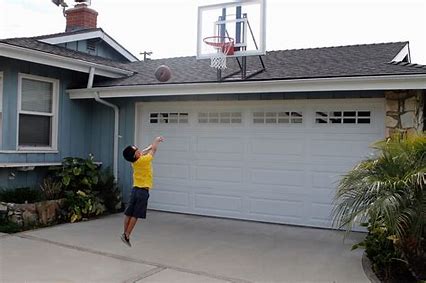Below is a review of the posts (on Facebook, LinkedIn, and Twitter) from the past week. You can check out the full posts by clicking on the links.

dress code.
In the post on Sunday 2/21/21, we saw that a man’s discrimination claim against Whole Foods was dismissed. Why? The underlying suit had 14 plaintiffs including Suverino Frith. He alleged that he was sent home from work after going in to work wearing a Black Lives Matter face mask. What Whole foods did to him (and others) in addition to sending him home for the day is in the post. The suit alleged discipline, intimidation and retaliation by Whole Foods in violation of Title VII. The judge dismissed all claims in the suit (except that for retaliation by another employee; the basis of that claim is noted in the post). The judge’s decision noted that employers can discipline employees who violate a dress code; the decision also talked about how Title VII fits in with the facts of the case (see the post).
TAKEAWAY: Employers should know what rules/policies allow or prohibit and enforce them evenly to stay on the right side of legal.

The post on Monday 2/22/21 told us that Google anted up $2.6M to settle a pay and job discrimination case. Yes, that’s a lot of money, so what is it settling? Four years ago, the Department of Labor sued after a periodic review of pay practices of government contractors; Google is one and got caught (up). The review alleged that from 2014-2017, Google paid female and Asian engineers less than similarly situated men in many locations as noted in the post. Google did not admit liability but agreed to the settlement. It’s response cum denial is in the post. The settlement is to be divided up $1.35 million to over 2500 female engineers and $1.23 million to more than 1700 women and Asians who unsuccessfully applied. But there’s more, more money that Google must pay – see the post.
TAKEAWAY: Pay all employees the same for doing the same work; if you think there is a valid legal basis to do otherwise, talk to an employment lawyer first.

The post on Tuesday 2/23/21 was about a mom frustrated after the neighborhood HOA demands removal of 11-year-old’s basketball hoop. We know mothers are like bears when it comes to their children, but would it be justified in this situation? Apparently the hoop had been in place for 7 years with no issues, then recently the HOA sent a letter requiring its removal. The son, Noah, tried to save it – what he did is in the post. But the HOA still said no. How this played (or may play) out legally is noted in the post (pay attention to that portion).
TAKEAWAY: Everyone must follow the Governing Documents in a planned community, but proper and even enforcement is key (and can provide a defense to a homeowner who is in violation).

but may be require
From the post on Wednesday 2/24/21 we learned that evicting from a condo association or HOA owners who repeatedly violate COVID-19 orders is not simple. While this did not happen in PA, it might play out the same. Here a man was arrested because he’d been using his penthouse as a makeshift nightclub for a few months. The latest time involved the owner and 77 guests, all of whom got tickets from the police. What did the host provide to the attendees in addition to an occasional doorman? See the post. The HOA went down the long road, including ensuring it has evidence to show the conduct was placing other occupants at significant risk. At least part of what the HOA requested the Court to award it is noted in the post. While this may seem not applicable other than in a condominium situation, there are still common elements in single-family communities where this type of thing may apply.
TAKEAWAY: Respect neighbors and follow public health and safety recommendations and orders – failure to do so may be a violation of the Governing Documents that leads to enforcement by the Association.

In the post on Thursday 2/25/21 we learned about a suit alleging Walmart violated the law when it refused to give a worker a set schedule. Michael Morin, age 40, worked at the same Walmart store for almost 20 years. Morin has an intellectual disability. Morin started there as a cart attendant in 2001 and earned raises and positive reviews, all while on a set schedule. In 2019 Walmart changed to a computerized scheduling system. Why it did that, and the effect on Morin, is in the post. Morin requested an accommodation which Walmart denied. Its basis for the denial is also in the post (ok, and makes this author scratch her head in light of statutory requirements). After finding that Walmart reasons was insufficient by law, the state human relations commission filed suit on Morin’s behalf. So now what will Walmart do?
TAKEAWAY: The question here, as in many cases, is whether something is a reasonable accommodation; that is fact-based and should be discussed with an employment lawyer.

The post on Friday 2/26/21 showed us that a Disney Festival of Lights performer alleges she was fired for getting pregnant. Earlier this month Shadea Curry Bahar sued in state court for wrongful termination, sex and disability discrimination, and other claims. The Festival of Lights ran from November 2019 to January 2020. Bahar contracted with Disney and a musical group as noted in the post. A threshold issue that became a nonissue was whether she was employed by Disney; the basis for an affirmative answer is in the post. Bahar was pregnant when hired and did not intend that the pregnancy would alter or affect her contractual obligations or performance. But when a manager found out, she was fired. Why was she fired? See the post. Stay tuned to see how the House The Mouse Built fares this time around.
TAKEAWAY: This is a perfect example of “regarded as” discrimination because no accommodation was requested – don’t step into this quicksand in your workplace.

Finally, in the post yesterday 2/27/21, the EEOC alleged an employer refused to delay a start date as an accommodation. At hire, the EMS dispatcher was 6 months pregnant. She was told she’d get leave for childbirth. She experienced problems and had to be induced 5 days before she was scheduled to start working. She asked for a short delay; the employer rescinded the offer on the basis noted in the post. So the EEOC sued on her behalf alleging a violation of the ADA. You are ae correct if you just said “but there is no special protection for pregnancy” – but there is protection for conditions or complications caused by pregnancy. Examples of all of this are in the post.
TAKEAWAY: Pregnancy discrimination is an EEOC enforcement priority, so know how to handle pregnancy applicants and employees. Consult an employment lawyer to protect your business.

 York, Pennsylvania 17403
York, Pennsylvania 17403